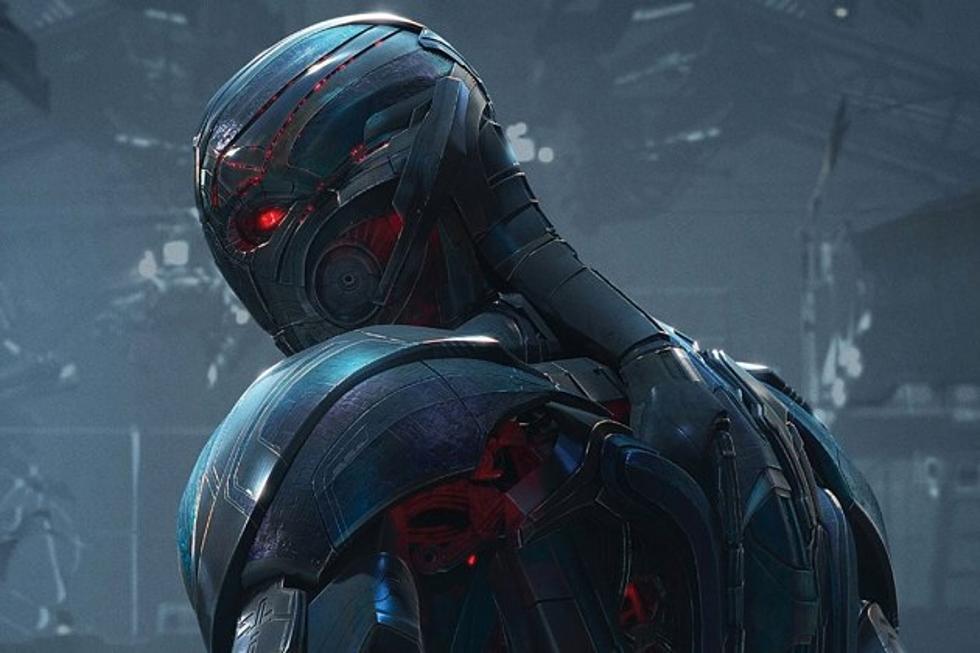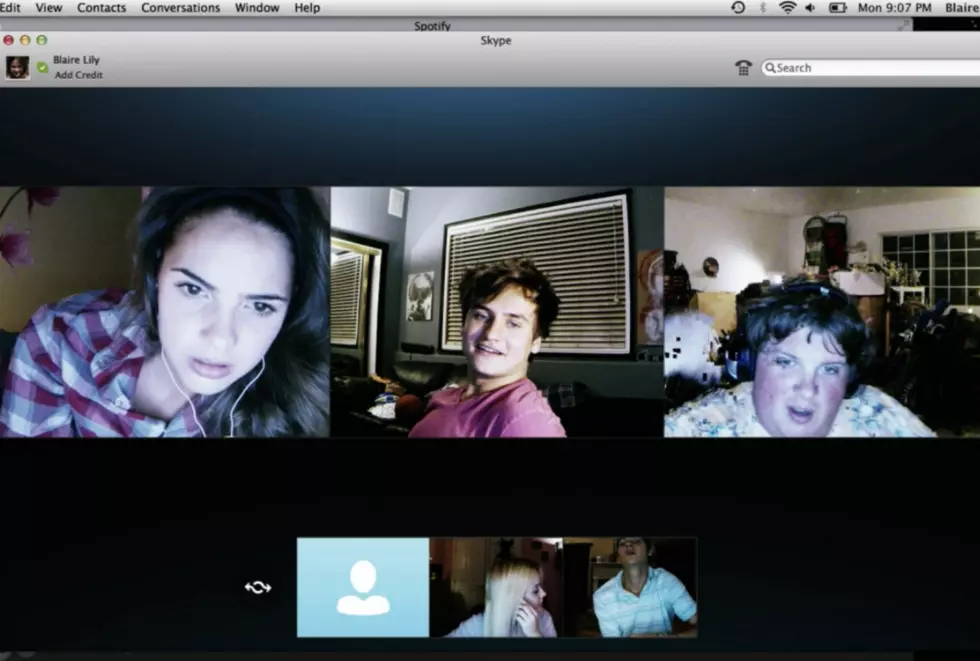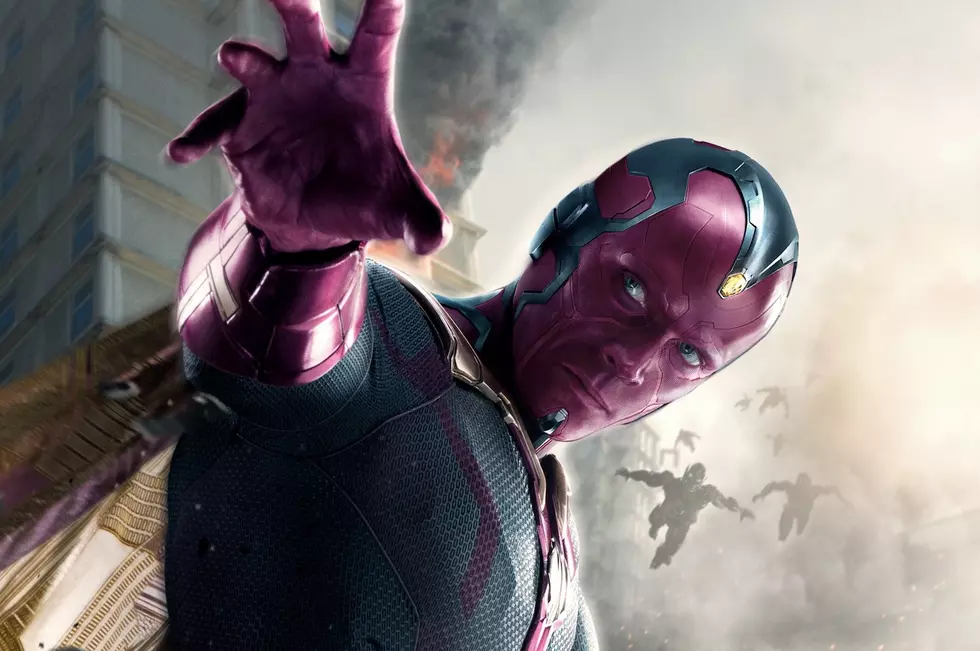
Rise of the Machines: How Robots Took Over Hollywood
When the Avengers reassemble for their big sequel this weekend, they do it to stop Ultron, an eight-foot-tall robot who wants to destroy the world. He’s the accidental creation of Tony Stark and Bruce Banner, who are trying to create an artificial intelligence capable of protecting the planet from threats too big for even the Avengers to handle. Their experiment is a horrific success; Ultron becomes self-aware, gives himself a body made out of spare Iron Man parts, and begins plotting the Earth’s destruction. “You want to protect the world, but you don't want it to change,” he tells the Avengers. “There’s only one path to peace. Your extinction ... when the dust settles, the only thing living in the world will be me!”
To that end, Ultron sends hundreds of drones to swarm our heroes. That big action finale of Avengers: Age of Ultron is the perfect metaphor for the robot invasion taking places in movie theaters around the world lately. In the last couple years — and even more in the last couple months — cyborgs, androids, automatons, synthezoids, and artificial intelligences of all shapes and sizes have become Hollywood’s favorite subjects. This really is the age of Ultron, and of robotic characters like him. A.I.s may not rise up against us and take over the world in the next few years, but in Hollywood that assimilation already happened, and the machines won.
Certainly, sentient computers with questionable or downright sinister motives have existed since the earliest days of cinema. A robot (or “maschinenmensch”) serves a crucial role in Fritz Lang’s Metropolis from 1927, one of the earliest and most influential science fiction films of the 20th century. In the decades that followed, robots and sentient computers remained a staple of dark and contemplative sci-fi, from The Day the Earth Stood Still to 2001: A Space Odyssey to Westworld to Blade Runner. Each new advance in technology brought new responses from filmmakers. Droids began to look more and more human. Computers gained more and more power to dominate or even destroy the planet.
But just as the pace of innovation has accelerated, the rate of robots popping up on screen seems to be increasing as well. In 2013, there were killbots in The Wolverine, Elysium, and The World’s End. Tom Cruise battled drones and an evil A.I. in Oblivion, while Joaquin Phoenix fell in love with his cell phone in the cautionary romance Her. The next year Johnny Depp became his laptop — and then his laptop attempted to replace the entire human race with nanobots — in Transcendence. Antonio Banderas played an insurance investigator in a dark future where droids serve as a sort of slave class in Automata. RoboCop got a remake, one with timely commentary about the perils of inhuman law enforcement. The latest X-Men sequel, Days of Future Past, found the surviving mutants in a dark future policed by giant killer robots named Sentinels. And of course the Transformers were back for a fourth go-round, this time threatening an Age of Extinction.
As much as these movies play into our fears about the future, they also tap into our anxiety about the present.
Halfway through 2015, dangerous A.I.s — or human paranoia about the dangers of A.I. — are already the year's most important cinematic trend. The tiny indie thriller Vice starring Bruce Willis updated Westworld for 2015. Elysium director Neill Blomkamp ratcheted up his exploration of future tech with Chappie, an action thriller about a police robot given consciousness by an ambitious young programmer. Last month’s Ex Machina centered on the notion of a Turing test — an attempt to discern whether a computer had attained true artificial intelligence — and a complex love triangle between a robot, her inventor, and his smartest programmer. Suspicion of technology’s even filtering down into more mundane apps; in the slasher film Unfriended a mysterious stranger infiltrates a group Skype call and starts picking teenagers off one by one. To recap: Sexbots will kill you, police bots will kill you, the singularity will kill you, and even web-based telecommunications will kill you. Is nothing sacred?
There have been a few notable recents exceptions to the killbot trend. In 2014, audiences witnessed positive portrayals of artificial intelligence in Christopher Nolan’s Interstellar and Disney’s Big Hero 6, and it seems likely that Brad Bird’s Tomorrowland will present a similarly utopian view of a world of limitless technological possibilities. But Avengers 2 is just the first of several upcoming summer blockbusters that hinge on whether cyborgs will end our civilization or save it; June’s Terminator Genisys marks the fifth film in the long-running sci-fi series about a perpetually looming war between man and machine. This latest film includes new versions of the standard Terminator (Arnold Schwarzenegger), the liquid T-1000 that can change its shape, and a new model that’s a human-machine hybrid.
Without seeing the new Terminator, that last one seems the most fitting for a world that lives more and more through its computer screens, and for modern viewers’ growing discomfort about the role technology plays in their lives. Certainly the killbot trend plays into our nagging fears of a future where mankind finds itself at war with its digitized creations. But as much as these movies play into our fears about the future, they also tap into our anxiety about the present, that our cellphones are destroying our attention spans or giving us cancer. Arguably, Terminator’s human-machine hybrids are already here. Stand on any street corner in midtown Manhattan and you’ll see them; they’re the ones so invested in their portable devices that they walk into oncoming traffic without looking where they’re going. The notion that technology will soon become so advanced that it renders mankind obsolete isn’t terrible far-fetched either — just ask anyone who used to work in the newspaper business, or telemarketing, or at a travel agency. Society loves a new gadget, until that new gadget takes someone’s job.
This trend doesn’t just reflect film viewers’ anxieties, though; it reflects filmmakers’ anxieties as well. True, movies like Ex Machina and Avengers: Age of Ultron would be impossible without computers to create their incredible special effects. But anyone who was involved in the botched release of the Batman v Superman: Dawn of Justice trailer — which leaked on the internet days before a massive launch event was scheduled in theaters around the country — will tell you Hollywood’s greatest enemy right now is technology. Technology enables people to pirate movies and share them instantly with millions of others. Technology, particularly the streaming video kind, is killing the industry’s vital home-video business. Technology offers moviegoers dozens of entertainment alternatives to a night at the multiplex, and technology distracts the moviegoers who do go to the multiplex. No villain mentioned in this essay is half as evil as the woman I sat next to at Cinderella a week ago who repeatedly took flash photographs of the screen throughout the movie. Not just pictures. Flash photographs.
A distant future ruled by machines is pretty scary. A world where humanity finds itself at the mercy of computers is no one’s idea of a good time. But at this rate, when the dust settles, there may be nothing left of the movie industry for the Terminators to destroy. Inconsiderate customers and thieves may do their job for them. Even Ultron would struggle to survive that apocalypse.
More From ScreenCrush









